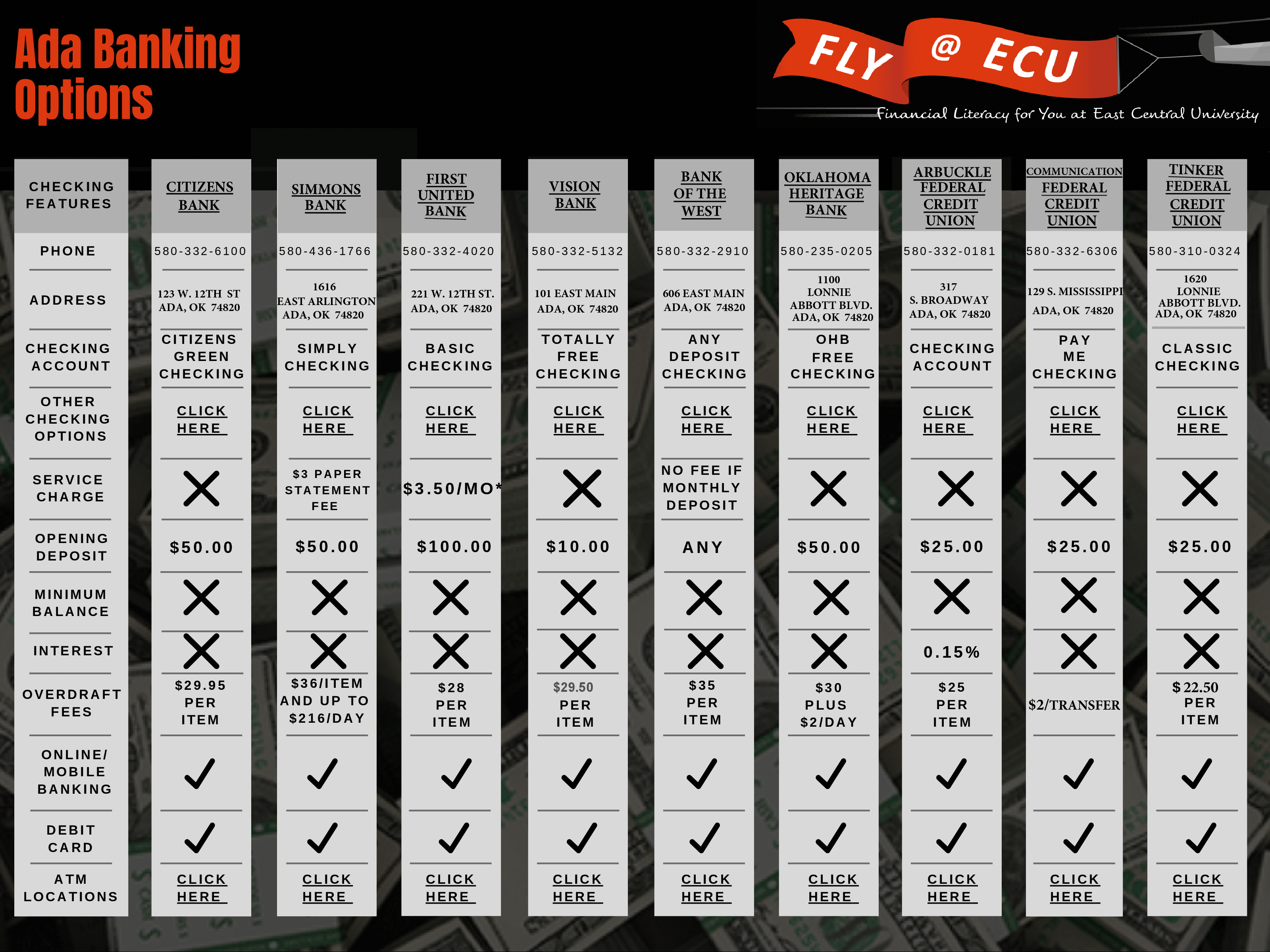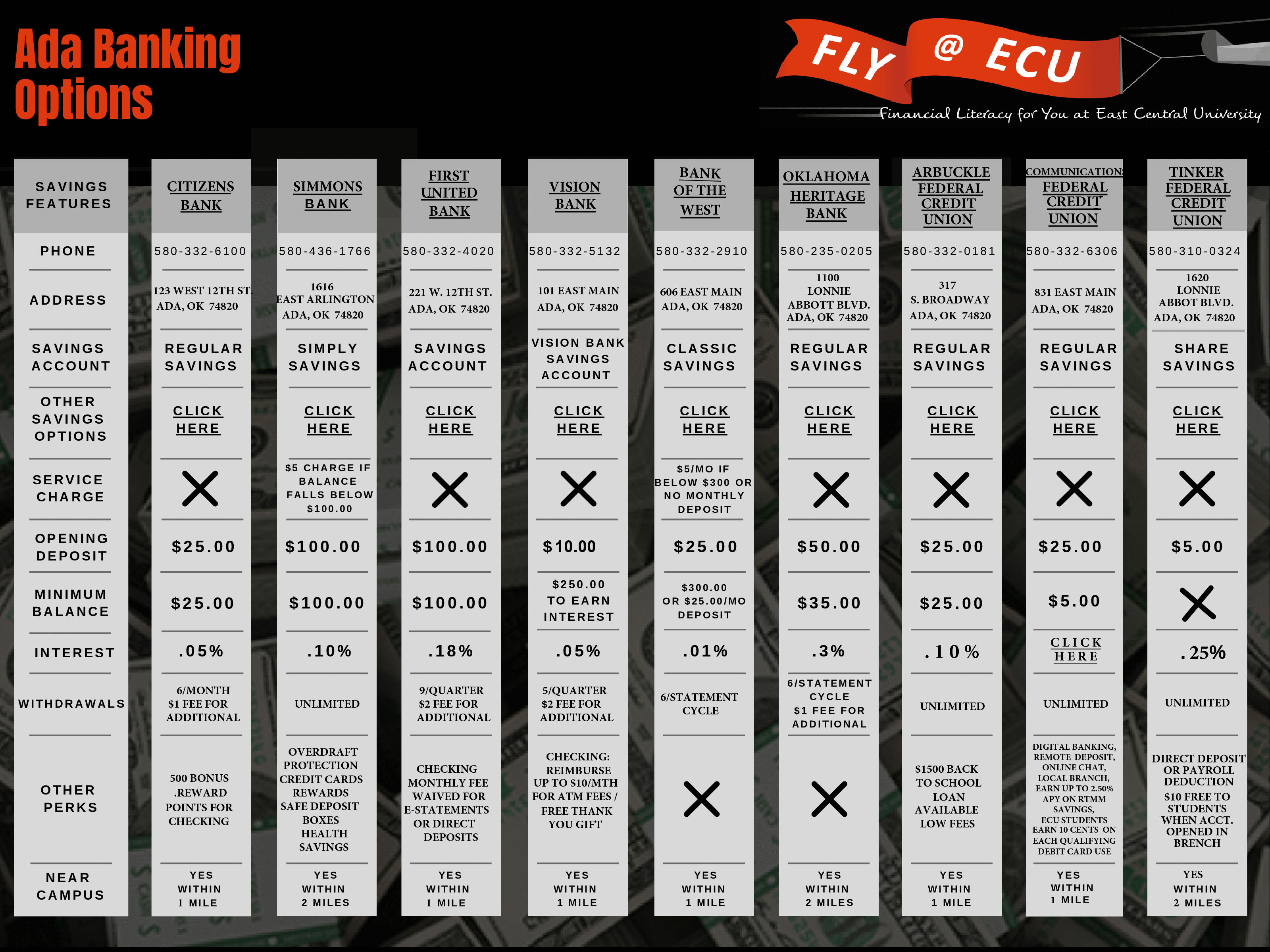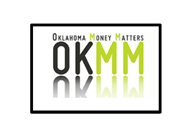Hmm...
Do I really need to put my money in a bank? Well...you could bury it in the back yard, but that’s not really a good idea. So, you have two other choices, banks and credit unions.
Banks vs. Credit Unions.
There are subtle differences between banks and credit unions. It’s important to know what makes them different so that you can best decide which will be the most advantageous to you! It is reassuring to know that both types of institutions will keep your money safe but one may offer better deals than the other...so compare them!
Who Owns them?
You will find banks in almost every town in Oklahoma. Banks are owned and managed by a group of individuals that have joined together to form a bank. These investors contribute operating money to fund the day-to-day activities and as with most investments, these owners will profit from a well-managed business. Banks can be part of a nationwide chain that adheres to their established business practices while others can be owned and run by folks in your community. A credit union in contrast is completely owned by its members and is a not-for-profit business. To join a credit union you may have to be affiliated with a certain profession or employment group, such as a state employee, military personnel, or attend an affiliated school or university, etc. However, membership may be available to you so check into the requirements. Completely owned by its members, a credit union’s day-to-day activities are funded from the daily operations, but profits are returned to the member/owners.
Who can use them?
As long as you can meet the requirements to maintain good financial standing, anyone can open an account at a bank. Credit unions traditionally only admitted the types of members they serve, but many are open to those residing in certain geographic areas.
What do they offer?
Banks historically offered more services than credit unions and usually have more locations to choose from, but today both offer virtually the same set of products and services and most credit unions are accessible through a nationwide, cooperative network of branches and ATMs. Credit unions are less profit driven (since they are member owned) and tend to offer higher interest rates on savings/checking accounts and lower interest rates on loans. It is best to always consider both types as one may be offering special offers when opening an account or taking out a loan. Compare!
How safe are they?
When it comes to safety, both choices insure an individual account up to $250,000. This means that if a bank or credit union fails, you won’t lose any of your money up to the $250,000. So as a rule, don’t have more than $250,000 in an account. If you do, open another account at a different bank to keep your balances under the limit. You want to make certain you are insured! Banks are covered by the Federal Deposit Insurance Corporation (FDIC) which is backed by the U.S. government. Credit unions are insured through the National Credit Union Share Insurance Fund (NCUSIF) which is also guaranteed by the U.S. government. Either way...your money is safe!
Banks and credit unions – services & fees.
Checking and savings accounts.
A checking account is used for spending. You deposit money into your checking account and withdraw money via checks, debit card, ATM’s, Venmo, PayPal, or other withdrawal methods. When choosing a checking account look for accounts that have no monthly fees, low or no overdraft (you spent money you don’t have) fees and convenient ATM’s around town. This is typically where you would have your employment check automatically deposited. The drawback to checking accounts is that they pay minimal interest on your balance, if any at all. Savings accounts on the other hand typically have higher interest rates so this is where you want to park money that you want to grow! There is a limit though to how many withdrawals you make a month from a savings account...so try not to access this money...save! When choosing a checking or savings account, shop around to find the best interest rates and the lowest fees that might be associated with the account. To open a checking or savings account you will typically need to provide a valid, government-issued photo ID, such as a driver’s license, as well as personal information like your birthdate, social security number, and a phone number.
What is a debit card?
A debit card, sometimes called a "check card", functions like a writing a check. When you use your debit card, money is deducted from your checking account reducing your balance. You can only use the debit card as long as you have money in your account - it's just like using cash. If you lose cash though, it's gone...but if you lose a debit card contact the bank immediately and they will deactivate the old card, remove any fraudulent activity and issue you a new one. Most financial institutions also now offer the ability to turn your card on or off via their digital banking platforms if you lose your card or notice fraudulent transactions. A debit card allows the user the to make purchases or utilize an ATM to withdraw money. In contrast, an ATM card only lets you withdraw money from your account at an ATM machine. Debit cards don't have as many protections against fraud as credit cards, so be aware of the terms of the card before you begin to use it. To be in the know, compare the difference between a credit card and debit card.
Loans.
Banks and credit unions offer a variety of loan products such as home, car, home-equity, and personal just to name a few. Borrowers with excellent credit will typically snag larger loans with the lowest interest rate. Also, building a good relationship with your bank or credit union might come in handy when applying for a loan...so keep your account in good standing. If you have a bad credit rating you may need a co-signer on your loan that will guarantee the loan will be paid. Being responsible and paying all your bills and obligations on time will help to improve your credit score and in turn will make it easier to secure a loan for that dream home someday.
Insufficient funds charge.
If you write a check for more money than you have in your account, then you have just ‘bounced’ a check and will be charged an insufficient funds charge, usually $15 to $30 per check! You will also be charged this fee if you use your debit card and don’t have funds in the bank to cover the purchase. Bottom line...don’t spend money that you don’t have! Those overdraft fees will add up so quickly so be aware of your account balance by checking it often to avoid making this mistake. Remember we just discussed building a good relationship with your bank? Well...writing ‘hot’ checks will not make you their favorite customer.
ATM fees.
ATMs are all over town, but if you use one that is not owned by your bank or credit union it could cost you extra, and your financial institution may even charge another fee on top of that! It’s best to read the fine print before you withdraw money from an ATM that isn’t managed by your financial institution. Lastly, never, ever give your card and PIN number to anyone else...protect what is yours.
Where to bank in Ada?
As a college student living in Ada you may want to open an account at a local bank for the sake of convenience. You have lots of options! To use the interactive version of this handy guide, click on the image.
This information presented in cooperation with Oklahoma Money Matters, the financial education outreach initiative of the Oklahoma College Assistance Program (OCAP), an operating division of the Oklahoma State Regents for Higher Education. For more information about OKMM, visit www.oklahomamoneymatters.org or call 1-800-970-OKMM.





